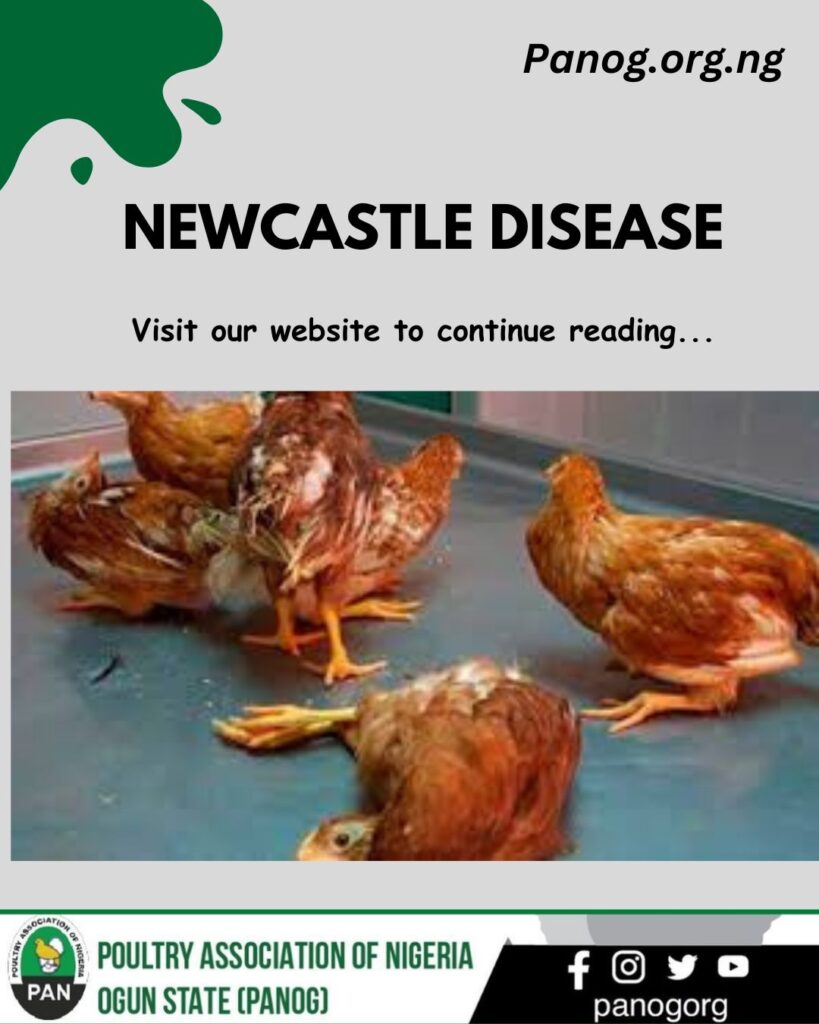Newcastle disease is a contagious viral disease that affects birds, especially poultry, and can cause significant economic losses in the poultry industry. Here’s an overview of its causes, prevention, and management:
Causes: Newcastle disease is caused by the Newcastle disease virus (NDV), which belongs to the Paramyxoviridae family. The virus can infect various species of birds, including chickens, turkeys, pigeons, and wild birds. It spreads through direct contact with infected birds, contaminated feed, water, equipment, or surfaces, as well as through airborne transmission of respiratory droplets.
Prevention:
- Vaccination: Vaccination is the most effective method for preventing Newcastle disease in poultry. Vaccines are available in different forms, including live, inactivated, and recombinant vaccines. Proper vaccination protocols should be followed based on the age and type of birds, as well as the risk of Newcastle disease in the region.
- Biosecurity Measures: Implementing strict biosecurity measures is essential for preventing the introduction and spread of Newcastle disease on poultry farms. This includes controlling access to the farm, disinfecting equipment and vehicles, practicing good hygiene, and minimizing contact with wild birds and other potential sources of infection.
- Quarantine: Quarantine new birds or birds returning from shows or exhibitions to prevent the introduction of Newcastle disease to the flock. Quarantined birds should be monitored for signs of illness before being introduced to the rest of the flock.
- Surveillance and Monitoring: Regular surveillance and monitoring for Newcastle disease are important for early detection and prompt response to outbreaks. This includes routine testing of sick or dead birds, as well as monitoring for clinical signs such as respiratory distress, neurological symptoms, and decreased egg production.

Cure: There is no cure for Newcastle disease once birds are infected. Treatment options are limited, and infected birds typically require supportive care, such as maintaining proper nutrition, hydration, and warmth. Sick birds should be isolated from the rest of the flock to prevent the spread of the virus. In severe cases, euthanasia of infected birds may be necessary to prevent further transmission of the disease.
In summary, prevention through vaccination, biosecurity measures, quarantine, and surveillance is key to controlling Newcastle disease in poultry populations. Early detection and prompt response to outbreaks are essential for minimizing the impact of the disease on the poultry industry.
